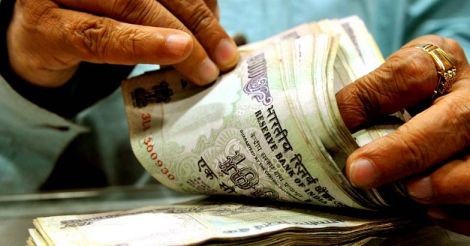-
Tips for becoming a good boxer - November 6, 2020
-
7 expert tips for making your hens night a memorable one - November 6, 2020
-
5 reasons to host your Christmas party on a cruise boat - November 6, 2020
-
What to do when you’re charged with a crime - November 6, 2020
-
Should you get one or multiple dogs? Here’s all you need to know - November 3, 2020
-
A Guide: How to Build Your Very Own Magic Mirror - February 14, 2019
-
Our Top Inspirational Baseball Stars - November 24, 2018
-
Five Tech Tools That Will Help You Turn Your Blog into a Business - November 24, 2018
-
How to Indulge on Vacation without Expanding Your Waist - November 9, 2018
-
5 Strategies for Businesses to Appeal to Today’s Increasingly Mobile-Crazed Customers - November 9, 2018
Urjit Patel takes charge as RBI governor
Rajan said the ranking of the RBI governor, now at cabinet secretary level, needed to be commensurate with the role – an issue that is believed to have played a part in Rajan’s unexpected announcement in June that he would not pursue a second term.
Advertisement
It is for taking complex decisions – often hard for the common citizens to understand – that the central banks should be independent and should be able to say “no” to seemingly attractive proposals, he argued but added that at the same time, it also can not become free of all constraints.
Speaking on the Independence of the Central Bank at St.Stephens College here, Rajan also argued in favour of having an independent central banker and his role and responsibilities.
“There is a reason why central bank governors sit at the table along with the finance ministers in G-20 meetings”, he said.
He said it is risky to have a de facto powerful position with low de jure status. Urjit Patel is the 24th Governor of RBI.
“The change in personality that Patel brings in to the top job at RBI appears to be very comforting to the industry and bankers who were often at the receiving end of the barbs, mostly in form of policy actions, from Rajan”, a veteran banker said.
Unlike Rajan, who took charge at a time when global markets were volatile and concerns were being raised about the rupee, the Gujarati-origin and once Kenyan citizen Patel has come in when financial markets are much more stable and concerns have also subsided about any potential dollar flight due to impending redemption of Non-resident Indian bonds.
“The Reserve Bank can not just exist, its ability to say ‘No!’ has to be protected”. “It has to work under a framework set by the Government”, he said.
He cited the example of recently outlined inflation target.
Instead, the government-appointed RBI Board, which includes ex-officio government officials as well as government appointees, should continue to play its key oversight role. Both measures have been adopted by the RBI already. The dividend policy of the RBI then becomes a technical matter of how much residual surplus is available each year after bolstering equity.
But in the same breath he went on to say that the central bank can not be free of all constraints as it has to work under a framework set by the government.
Rajan said macroeconomic stability is of paramount importance for India and also, the central bank must have the resources, knowledge and professionalism to act when the situation warrants.
Advertisement
“For example, with an inflation focused framework, the RBI’s ability to be accommodative depends on fiscal prudence from the centre and states. This is an area where clarity would be useful”, Rajan said.





























